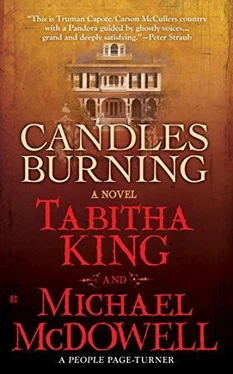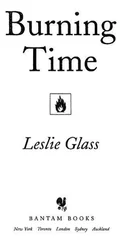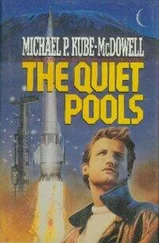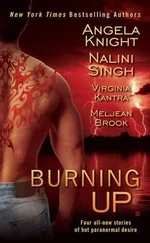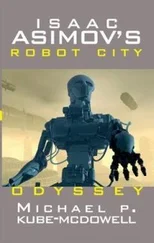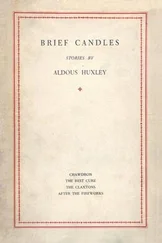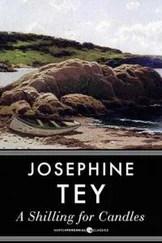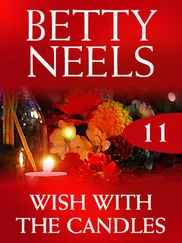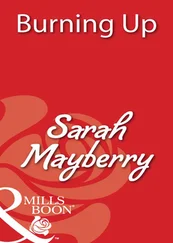Mama found a little box all wrapped up in gold foil paper and red ribbon on her pillow, along with a card from Daddy. It was pearl earrings. She gave him a kiss that left him laughing and wiping lipstick off his face with a big white cotton handkerchief.
Of course she had to put them on right away to see how they looked on her.
While she was admiring herself and the earrings in the mirror, Mama said, “I don’t know how you did it, Joseph, but I believe you must have read my mind. I have been longing for these earrings since the day I first saw them in the window at Cody’s.” Then she glanced up at his reflection looking at her in the mirror and added, “Don’t think this fixes anything, Joseph. I do you the honor of believing that you would never try to bribe me with baubles. I take these as a gift of the heart.”
Daddy stopped smiling and looked away. Embarrassment, anger, and weariness stiffened his face. I never saw him look sadder. It made me angry with Mama, her taking away his pleasure in giving her a gift.
Daddy was in meetings all that day. Ford went with him to most of them. Daddy listened to speeches, he shook hands, he gave a couple of talks, he shook more hands, and he said, “No thanks, I just had one,” when someone offered him a drink or a girl. This is what Ford reported to me. Ford thought it was funny. I caught on to the part about the drink but I couldn’t figure out why anybody at a convention would offer Daddy a girl, and why he would say “just had,” when he must have meant “already have,” meaning me.
Mama went with Daddy to the convention lunch. I stayed in the Penthouse with Ford. He tried to feed me half a sandwich all at once. I gritted my teeth tightly while he mashed my lips against them with the sandwich. When I shoved a pointer finger into the hollow at the base of his throat, he made a gakking noise and jumped up and slammed out. I reckoned that I had better than held my own, which made the ice I sucked to stop my mouth swelling up taste all the sweeter.
When Mama came back, she never even asked where he was. I volunteered nothing. He had not told me that he was going out or where or why, and after all, he was eleven and had gone to meetings with Daddy. I certainly did not care where Ford was, so long as he was not plaguing me.
Mama did not need to do anything else until it was time to dress for the big Valentine’s Day dinner, so she took me shopping.
And that was why Daddy got murdered.
It was still raining.
Plashplotzplashplotz
The water bouncing off the pavement made a mist around our ankles. It was like standing in a cold shower with clothes on. I kept my glasses in my coat pocket to keep them dry. The droplets beaded on my light wool coat and then began to seep through the weave. The rain did not matter to Mama. She had an umbrella and she hardly cared whether I got wet or not. More than once, she had told me that I would not melt.
Mama rarely shopped for clothes in stores back then—she turned her nose up at most everything off the rack. She had Rosetta copy fashions out of Vogue magazine. Elsa Schiaparelli was her favorite designer. Besides wearing copies of Schiaparelli designs, Mama bought real Schiaparelli hats and bags and gloves and silk stockings. Daddy had given her a real Schiaparelli karakul coat, with the label inside it to prove it.
Mostly she shopped in antique stores. Mama liked being rich and buying things that other rich people were now too poor or too dead to hold on to, and buying them cheap. Bargains indeed were to be had, for it was one of those times when the antiques trade languished. The fifties were about the new things that could be mass-produced. Mama bought small things: old jewelry, old perfume bottles, and candlesticks.
She was very fond of candlelight, which flattered her skin. I knew from the way she checked the mirrors after she lit candles. At home, she always had candles lighted on the table when we ate our evening meal. Decades before candles became a decorating fad, Mama set them out in her bathroom and her boudoir. Naturally the candles had to be in something .
Along with ashtrays, candlesticks made excellent hissy-fit projectiles. Mama was no athlete but she could always summon strength enough to pitch a candlestick or an ashtray. Fortunately, she rarely hit anything or anyone who might be too far away to grab her wrist and arrest her throw. Her habits did maim or destroy quite a few ashtrays and candlesticks, as well as the walls and furniture and windows, making replacements in kind welcome. Her ashtrays never came from antique stores. She ordered cut-crystal ones that fit the palm of her hand, by the dozen, from the best downtown jeweler, the one where Daddy bought her the pearl earrings.
We traipsed from one antique shop to another. Each shop was a single room, cramped with enormous pieces of mahogany furniture, every piece dark with wax, every piece laden with old lamps and old porcelain figurines and old odd pieces of brass. On the walls were old bad paintings of saints, old good portraits of the formerly rich and old mildewed prints behind glass that sweated with Louisiana moisture. Even in Montgomery or Mobile or Birmingham, each shop was always still and damp and the proprietor was always an old woman with paper-white skin, or sometimes a middle-aged man with pomade-shiny hair, who was likely the son or nephew of the old woman with narcissus-petal skin. The light was dim and dusty in those shops and my only occupation, while Mama poked about and the old proprietor kept a wary watch on me, was to try to catch stray gleams of sunlight as they were refracted through the dusty dangling prisms of old chandeliers and lamps.
As soon as we entered a shop, Mama would order me to touch nothing and be still and silent, on pain of some gaudy punishment. The proprietor would then stare at me for fear that I would seize a poker from a fender set and run wildly through the shop, screaming like a maniac, smashing everything I could. Sometimes I longed to do just that. Knowing my own clumsiness, I usually found a spot out of the way and pretended to be a big dead doll, imagining what bits of me were broke and how messy my hair was and that my eyeballs were all popped out and looking in different directions.
In the last shop but one, the proprietor reacted to Mama’s warning with a violent hiss and shooing gestures directed at me. Mama sent me outside, where I stood on a corner and dripped and listened to the sounds a steady rain makes on all the different surfaces around a person standing in it. I wondered what snow would sound like. Someday I meant to see snow in the flesh and hear it and feel its cold kiss upon my upturned face but, of course, I could hardly expect it in New Orleans. I wondered if it had ever snowed in New Orleans. Snow would sound not like a leaf falling but like a downy feather. I would have liked to hear the birds in New Orleans. Hadn’t Daddy said that there were wild parrots in New Orleans? I would have liked to hear the voices of whatever other critters lived there. Surely there were chipmunks or squirrels or both, and certainly as wet a place as it is, there must be rats. There had to be mice and cats and dogs, and someone in New Orleans surely had a monkey. There must be a zoo. But the rain drowned out any hint of any of those enchanting possibilities. A sudden swoop of wind threw rain into my face and down the back of my neck and the downpour intensified, so I shivered. I tipped back my head and opened my mouth to the rain, and got a face-wash as well as a drink.
The next shop we approached ticked. I heard it distinctly from outside and around the corner. As the jangle of the brass bell on the door announcing our entry subsided and the ticking again dominated, I took my glasses out of my coat pocket where they been safe and dry and put them on. A whole wall of old clocks, none of them with their hands pointed at the same hours or minutes or seconds as the others, ticked and tocked and clicked and thocked and pecked and clucked like an aviary of mechanical birds.
Читать дальше
